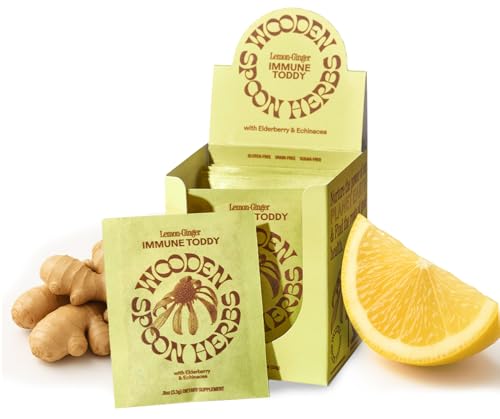Echinacea for Athletes: Does It Boost Performance?
Quick Summary: Researchers looked at whether taking echinacea, a popular herbal supplement, helps athletes perform better. They found that echinacea doesn't seem to improve endurance or increase red blood cells, which carry oxygen to muscles.
Does Echinacea Improve Athletic Performance?
This study looked at several smaller studies to see if echinacea helps athletes. The answer? Not really. The research showed that taking echinacea didn't significantly improve athletes' ability to exercise for a long time (aerobic capacity) or boost their red blood cell production.
What The Research Found
- No Endurance Boost: Echinacea didn't help athletes run faster, cycle further, or improve their overall endurance.
- No Red Blood Cell Increase: Echinacea didn't significantly increase hemoglobin or hematocrit levels, which are measures of red blood cells. More red blood cells mean more oxygen to muscles.
- Small, Inconsistent Effects: While there were some small positive changes in red blood cell measures, they weren't consistent across all studies and weren't statistically significant.
Study Details
- Who was studied: 107 athletes total, from six different studies.
- How long: The studies lasted from 2 to 12 weeks.
- What they took: Athletes took different doses of echinacea, in pill or liquid form. The amount varied from 400mg to 8,000mg per day.
What This Means For You
- Don't expect a performance boost: If you're an athlete hoping echinacea will improve your endurance or performance, this research suggests it's unlikely to help.
- Focus on proven methods: Consider other supplements or training methods that have been shown to improve athletic performance, like creatine or caffeine. Always consult with a doctor or qualified healthcare professional before taking any supplements.
- Echinacea for other uses? This study only looked at athletic performance. Echinacea might still have other potential benefits, like supporting the immune system, but this study didn't address those.
Study Limitations
- Small number of studies: The researchers only looked at a few studies, so more research is needed.
- Different echinacea types and doses: The studies used different types and amounts of echinacea, making it hard to draw firm conclusions.
- Short study durations: The studies were relatively short, so we don't know if echinacea has any long-term effects.
Technical Analysis Details
Key Findings
This meta-analysis evaluated the effects of echinacea supplementation on aerobic capacity (maximal oxygen uptake, VO₂ max) and erythropoiesis (hemoglobin and hematocrit levels) in athletes. Across six randomized controlled trials (RCTs), echinacea did not significantly improve VO₂ max (standardized mean difference, SMD: -0.03, 95% CI: -0.45 to 0.39) or demonstrate meaningful erythropoietic effects. While small positive effect sizes were observed for hemoglobin (SMD: 0.38, 95% CI: -0.05 to 0.81) and hematocrit (SMD: 0.28, 95% CI: -0.16 to 0.72), these results lacked statistical significance and were inconsistent across studies.
Study Design
The meta-analysis pooled data from six RCTs (total n=107 athletes) identified through a PubMed search up to 2024. Inclusion criteria required trials to assess echinacea’s impact on erythropoiesis or aerobic performance in athletes. Study durations ranged from 2 to 12 weeks. The analysis followed PRISMA guidelines, with two reviewers independently screening studies. Subgroup analyses were conducted to evaluate heterogeneity, but no significant effects were found.
Dosage & Administration
Supplementation protocols varied widely across studies. Doses ranged from 400 mg/day to 8,000 mg/day, administered as tablets, capsules, or liquid extracts. Duration of echinacea intake spanned 2–12 weeks, with most trials lasting 4–8 weeks. No standardized dosing regimen was identified, limiting conclusions about optimal administration.
Results & Efficacy
- VO₂ max: No significant difference between echinacea and placebo groups (SMD: -0.03, 95% CI: -0.45 to 0.39).
- Hemoglobin: Small effect size (SMD: 0.38, 95% CI: -0.05 to 0.81), but wide confidence intervals indicated uncertainty.
- Hematocrit: Similarly modest effect (SMD: 0.28, 95% CI: -0.16 to 0.72), with no consistent trends.
- Subgroup Analysis: No significant effects detected in studies using specific echinacea species (e.g., Echinacea purpurea) or standardized extracts.
Limitations
- Small Sample Size: Only six trials (n=107 total) met inclusion criteria, reducing statistical power.
- Heterogeneity: Variability in echinacea formulations (species, dosage, duration), athlete populations (e.g., endurance vs. strength athletes), and study designs limited generalizability.
- Short Duration: No trials assessed long-term effects beyond 12 weeks.
- Publication Bias: Potential for missing unpublished null trials, though not explicitly tested.
- Demographics: Limited details on age, sex, or baseline fitness levels of participants.
Clinical Relevance
For athletes seeking to enhance aerobic performance or red blood cell production, this meta-analysis provides moderate evidence that echinacea supplementation offers no ergogenic or erythropoietic benefit. The lack of significant results across multiple trials suggests that echinacea is unlikely to improve endurance-related metrics. However, the study does not address echinacea’s potential effects on immune function or other non-performance outcomes. Users should prioritize evidence-based supplements (e.g., creatine, caffeine) for performance enhancement and consult healthcare professionals before use.
Source: PubMed (2024)
Original Study Reference
Echinacea Supplementation Does Not Impact Aerobic Capacity and Erythropoiesis in Athletes: A Meta-Analysis.
Source: PubMed
Published: 2024
📄 Read Full Study (PMID: 38999738)


